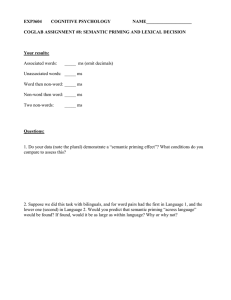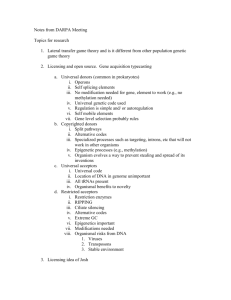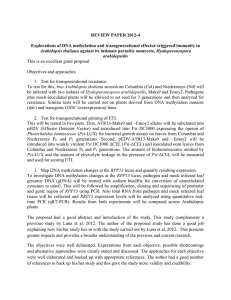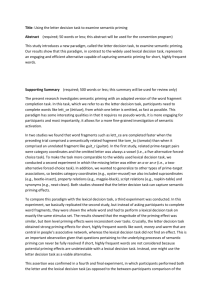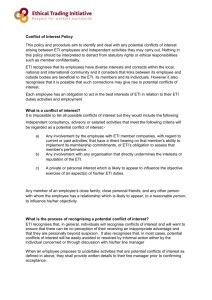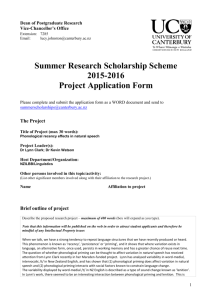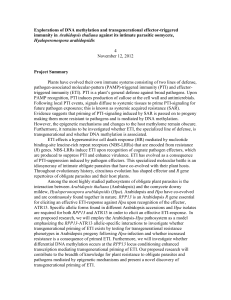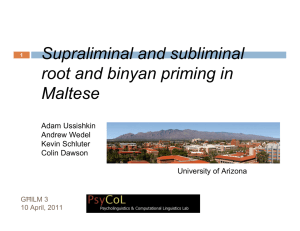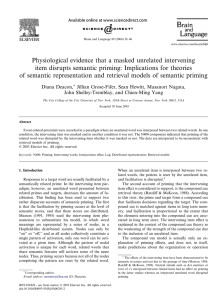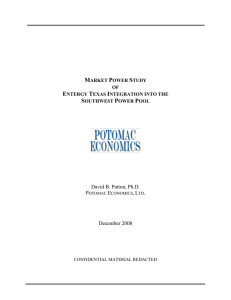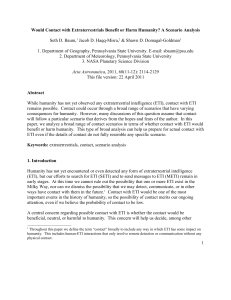2012-4: Explorations of DNA methylation and transgenerational effector- Arabidopsis Hyaloperonospora arabidopsidis
advertisement
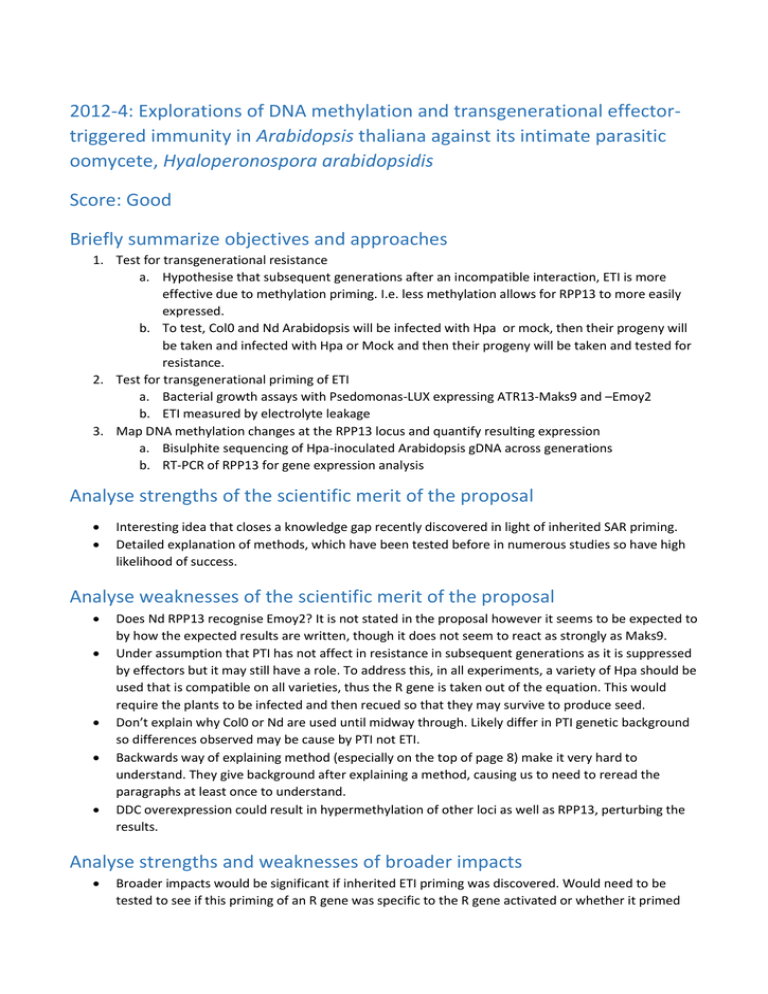
2012-4: Explorations of DNA methylation and transgenerational effectortriggered immunity in Arabidopsis thaliana against its intimate parasitic oomycete, Hyaloperonospora arabidopsidis Score: Good Briefly summarize objectives and approaches 1. Test for transgenerational resistance a. Hypothesise that subsequent generations after an incompatible interaction, ETI is more effective due to methylation priming. I.e. less methylation allows for RPP13 to more easily expressed. b. To test, Col0 and Nd Arabidopsis will be infected with Hpa or mock, then their progeny will be taken and infected with Hpa or Mock and then their progeny will be taken and tested for resistance. 2. Test for transgenerational priming of ETI a. Bacterial growth assays with Psedomonas-LUX expressing ATR13-Maks9 and –Emoy2 b. ETI measured by electrolyte leakage 3. Map DNA methylation changes at the RPP13 locus and quantify resulting expression a. Bisulphite sequencing of Hpa-inoculated Arabidopsis gDNA across generations b. RT-PCR of RPP13 for gene expression analysis Analyse strengths of the scientific merit of the proposal Interesting idea that closes a knowledge gap recently discovered in light of inherited SAR priming. Detailed explanation of methods, which have been tested before in numerous studies so have high likelihood of success. Analyse weaknesses of the scientific merit of the proposal Does Nd RPP13 recognise Emoy2? It is not stated in the proposal however it seems to be expected to by how the expected results are written, though it does not seem to react as strongly as Maks9. Under assumption that PTI has not affect in resistance in subsequent generations as it is suppressed by effectors but it may still have a role. To address this, in all experiments, a variety of Hpa should be used that is compatible on all varieties, thus the R gene is taken out of the equation. This would require the plants to be infected and then recued so that they may survive to produce seed. Don’t explain why Col0 or Nd are used until midway through. Likely differ in PTI genetic background so differences observed may be cause by PTI not ETI. Backwards way of explaining method (especially on the top of page 8) make it very hard to understand. They give background after explaining a method, causing us to need to reread the paragraphs at least once to understand. DDC overexpression could result in hypermethylation of other loci as well as RPP13, perturbing the results. Analyse strengths and weaknesses of broader impacts Broader impacts would be significant if inherited ETI priming was discovered. Would need to be tested to see if this priming of an R gene was specific to the R gene activated or whether it primed multiple. Also would need to see whether there were any drawbacks of this priming separate from affects of SAR priming to see whether this would actually be feasible in generating heightened resistance. Unlikely to be useful for breeders unless multiple R genes are primed when one is activated as improving resistance to an already incompatible pathogen would be futile. Provide a couple summary sentences about your overall thoughts on the proposal, why it was particularly strong, or if you didn’t score an excellent, a main reason or two that kept you from scoring it higher. The dismissal of PTI as a factor worries me, especially considering that two different ecotypes are being directly compared. Col0 and Nd may differ at RPP13 but also elsewhere, which is not taken into account. I would be more comfortable if the comparison was Col0, Nd and an Nd RPP13 knockout line. Explanations of the importance of the ecotypes and strains used should have appeared much earlier and some of the background did not seem relevant to the study and functioned only to distract the reader from the important parts. Moreover, some parts were left unexplained. Is the “DNA methylation mutant” referring to the ddc mutant or something else? I am not sure
